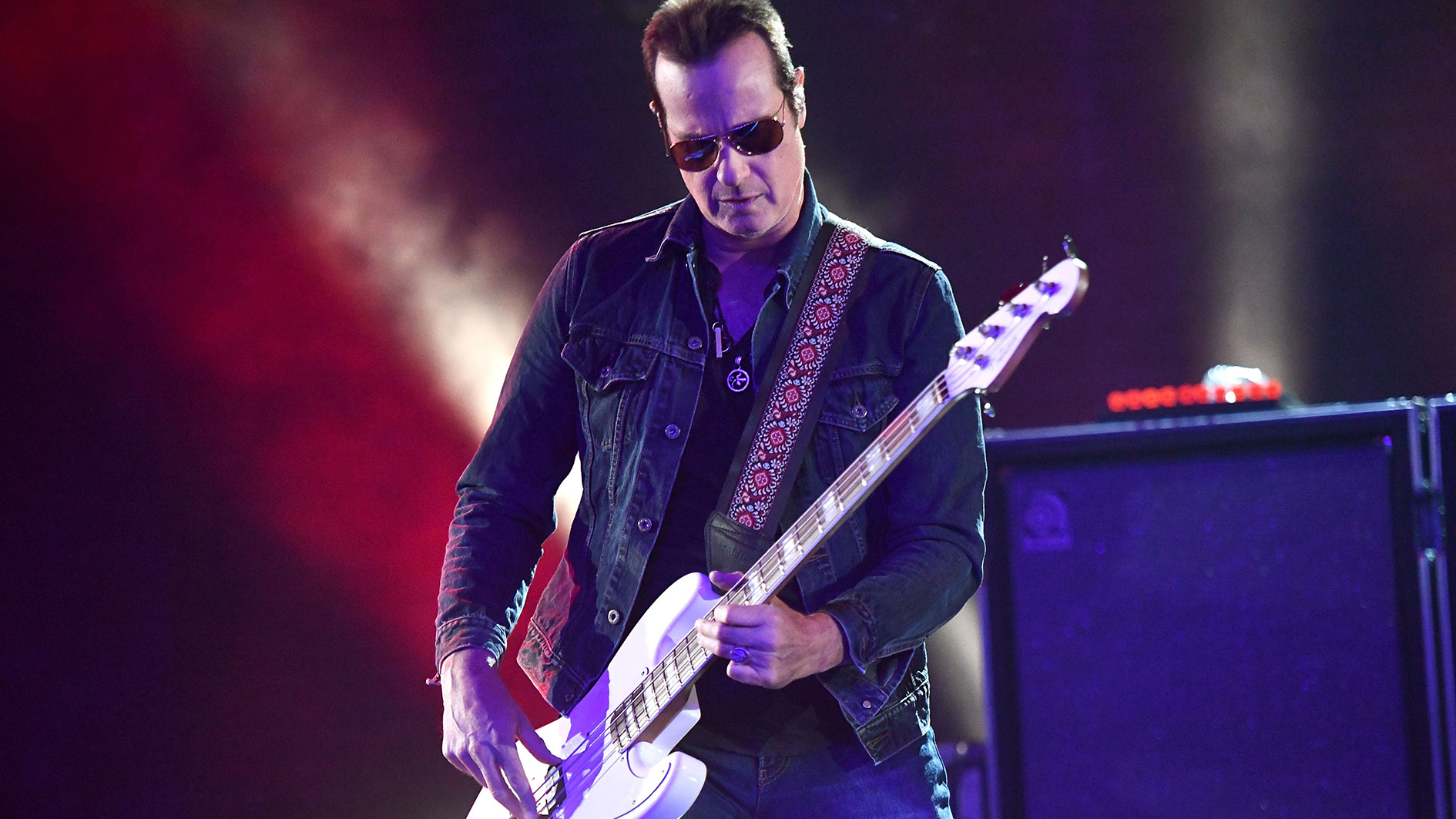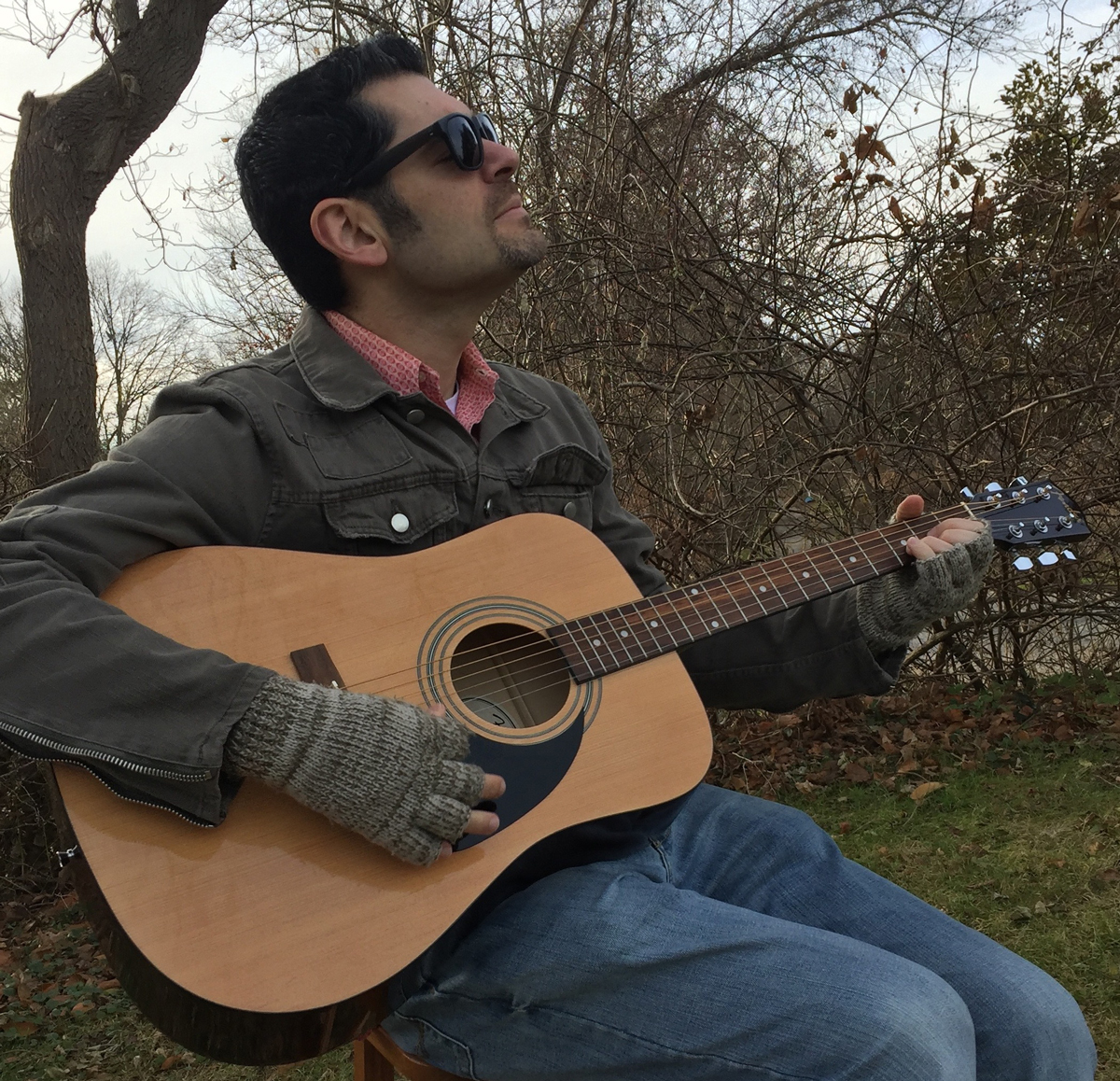Stone Temple Pilots’ Robert DeLeo: “It’s important for any musician to listen to as many kinds of music as you can”
25 years on, the alt-rock heroes' third studio album Tiny Music... Songs from the Vatican Gift Shop is getting the box set treatment. Bassist Robert DeLeo remembers the original record's creation

All the latest guitar news, interviews, lessons, reviews, deals and more, direct to your inbox!
You are now subscribed
Your newsletter sign-up was successful
During the first half of the '90s, it seemed like every month, a now-classic alt-rock or metal album was released. And Stone Temple Pilots offered not one, not two, but three deserving entries (that walked the line between both aforementioned genres) – 1992’s Core, 1994’s Purple, and 1996’s Tiny Music...Songs from the Vatican Gift Shop.
And to mark 25 years since its release, Tiny Music has received the box set treatment – loaded with goodies (including outtakes and a previously unreleased live show from the era) and featuring the late/great Scott Weiland on vocals.
It also turned out that Tiny Music was the group’s most musically diverse offering. In addition to the rock radio hits Big Bang Baby, Trippin’ on a Hole in a Paper Heart and Lady Picture Show, listeners also discovered a bossa nova-flavored ballad (And So I Know), a tune with a Herb Alpert-esque trumpet solo (Adhesive), a composition that sounded straight out of a soundtrack (Press Play), etc.
STP bassist Robert DeLeo took a trip down memory lane with Guitar World to discuss the making of Tiny Music, gear and future plans.
What gear were you using for the recording of the Tiny Music album?
“We rented a house for that record [Westerly Ranch in Santa Ynez, California], and brought in a lot of vintage Neve preamps. And then as far as personal stuff, for me bass-wise, that was my first record that I actually started using what I still use in my bass set-up.
“Which is I had a 1970 Marshall 8x10 that I use for one of the channels. And then a 1967 Ampeg B-15 for one of the other channels. And then, a direct. So I kind of blend those three together. And that was the first time I started using that.
All the latest guitar news, interviews, lessons, reviews, deals and more, direct to your inbox!
“Guitar-wise, Dean [DeLeo] was in the midst of building his collection at the time, and brought a lot of stuff in – as well as Brendan [O'Brien, the album's producer]. Boy, there was a whole array of stuff. When you’re making a record with Brendan, just his collection alone…it’s like candy land.
“So, we had lots of vintage acoustics, Martins, Gibsons, Fenders. Too much to even list. And that’s always fun – having a pick of a lot of vintage stuff.”
Can you pinpoint the main basses you used for the sessions?
“I had some Schecters I was using. At the time, I had a ’59 P-Bass, a ’68 Fender Mustang that I used for a song called And So I Know, a ’67 P-Bass. Mostly P-Basses.”
And what about Dean, guitar-wise?
“Dean had his Danelectros and 6-string basses, Les Pauls. I think he was right at the time starting to purchase the stuff. And when you purchase something like that, you want to use it. And what better time to use it than making a record? It was a lot of different stuff.”
I always assumed the album’s title related to using small amps for the recording. Am I right?
“No, because we were always using smaller amps. We started getting more into those on Purple, the album before it.
“But the album title came about because we had one of those things where you have a bunch of words on magnets that go on the refrigerator. I think Dean was the one who put together Tiny Music.
“And that’s where it kind of all stemmed from – putting those two magnetic words together on a refrigerator.”
How has your bass playing evolved since then?
“I used to be better back then! [Laughs] I used to be one of those people that really tried to be a great bass player. And then I realized there are a lot of other people that can do that better. But not everyone can write songs.
“So, if a song calls for something like, Trippin’ on a Hole in a Paper Heart, I want to accommodate the song. And I’ll play that bass line. If it’s a song like Lady Picture Show, I’ll do that. I kind of play according to the song – or try to. I try to accommodate the song.
“But I’ve got a better understanding I think of how to work bass lines out with chords. I think that’s part of just growing and listening.
Don’t criticize a song until you play it, because the easiest-sounding thing can be the hardest thing
“It’s important for any musician – especially young and up and coming – to really just listen to as many kinds of music that you can. Just digest whatever you can, and I think eventually, things will come out. And you’ll know how they want to come out – from yourself.”
Is it ever challenging for you to play a variety of different styles? Tiny Music was STP’s most musically diverse album.
“No. It’s fun – I think as far as listening to so many different kinds of music.
“I said this many times before – don’t criticize a song until you play it. Because the easiest thing can be the hardest thing – whether it’s feel or laying back or groove.
“Just learn how to play it. And then when a song like that comes up, you’ll know how you want to play that song. I think it’s important.”
STP’s last album, Perdida, sadly seemed to get lost in the shuffle due to Covid and being unable to tour. Would you like to try and revive that album once everything goes back to normal?
“I would love to. But I think just getting it out and making those emotions and everything in the songs was like therapy.
“It was pleasing to just complete those as pieces of music and get them out. I don’t think we were looking to win Grammys. I think it was just a matter of getting that stuff out and getting it off your heart, mind and soul.
“But yeah, it would be great to try to tour that and make that into something. I think people would really enjoy that. I would love to tour that.”
What is up next for STP?
“We’re still trying to figure that out. These are interesting times. The people that are in this business of entertainment are the last to kind of shove off on what we used to be doing.
“I think we’re still trying to figure that out… I think the world is still trying to figure that out. So, we’re kind of at the mercy of the hands of this pandemic and seeing where this all takes us.
“I’m hopeful – to see what’s going to happen here. And hopefully see the light at the end of the tunnel.”
- Stone Temple Pilots’ Tiny Music box set will be available from July 23.
Greg is a contributing writer at Guitar World. He has written for other outlets over the years, and has been lucky to interview some of his favorite all-time guitarists and bassists: Tony Iommi, Ace Frehley, Adrian Belew, Andy Summers, East Bay Ray, Billy Corgan, Alex Lifeson, Geddy Lee, Les Claypool, and Mike Watt, among others (and even took lessons from John Petrucci back in the summer of ’91!). He is the author of such books as Grunge Is Dead: The Oral History of Seattle Rock Music, Shredders: The Oral History of Speed Guitar (And More) and Touched by Magic: The Tommy Bolin Story.

